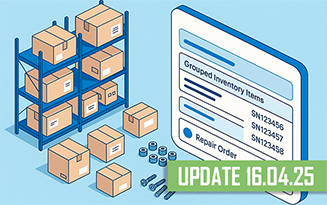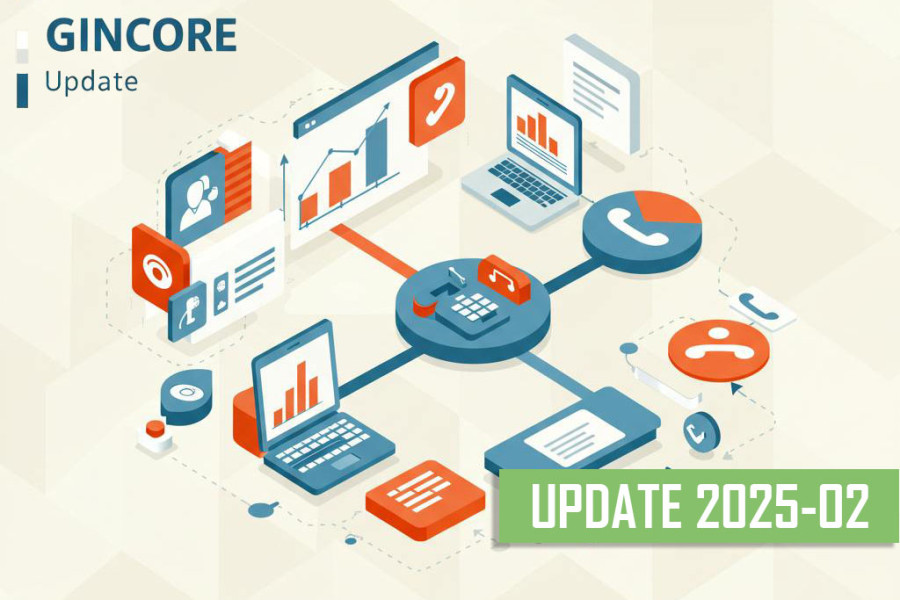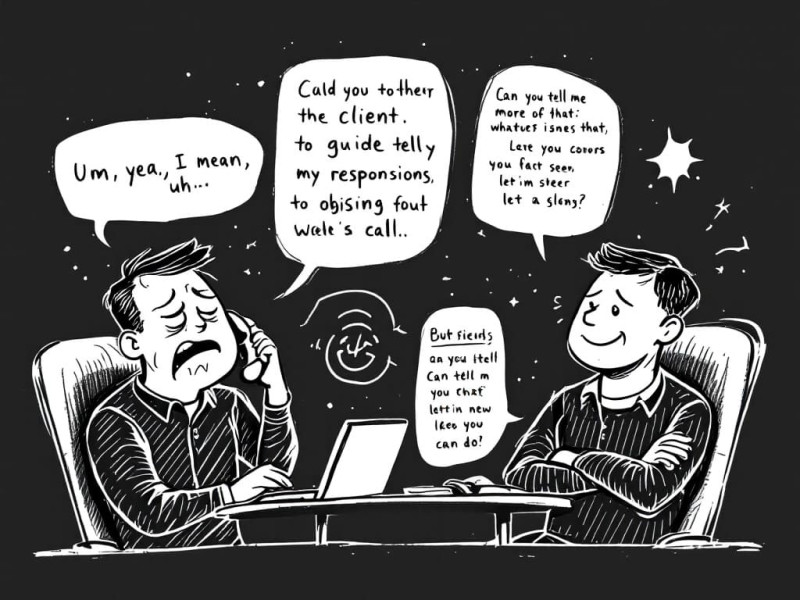In the field of trade, communication with customers is of great importance. The general mood, the quality of the services or goods provided, the honesty and professionalism of the seller, as well as the words that he chooses, significantly affect the success of the transaction. Each company should have clear rules for communicating with clients, set by the script. It allows you to exclude possible mistakes in work and communication with people. According to statistics, the script allows you to increase the number of successful sales by 45%.

What is a script?
A script is a prepared scenario of business negotiations between a seller and customers. This tool allows you to competently build a speech, structure it and profitably sell a product or service. The scenario is structured as follows: presentation of arguments by the seller, questions and objections of the client, their elaboration, summing up the sale, successful conclusion of the transaction. However, one script is not enough for a successful sale.
The ideal script includes all possible conversation options. The average sales scenario looks like this:
- Greetings. First you need to think over your welcome phrases. This will help you positively win over your customers and establish contact with them. The greeting should be sincere and warm. It is important to avoid standard phrases so that the person does not understand that you have a script. For example: "Good afternoon. My name is Helena, I am a representative of company X. Is it convenient for you to talk now? (if not, then ask how long it is more convenient to postpone the conversation). I am calling to offer you assistance as I am your account manager...".
- Determination of needs. After establishing contact, you need to find out the needs of the client. Clarifying questions are suitable for this. Then, it is important to listen carefully to the person's answers. At this stage, you should understand the problems and motives of the future buyer. All this will help you understand how best to offer a service or present a product. The seller should prepare an average of 7-10 clarifying questions and possible answers. Questions can be the following: "Tell us about what you are doing? What problems need to be solved? What are your priorities? What do you rely on when choosing?"
- Presentation of products or services. When preparing a presentation, you need to select the advantages of your proposal so that they immediately satisfy the client. For some people, functionality and appearance are most important, while for others - the cost and capabilities that the product/service provides. At this stage, the script needs to present a story about the product, which is based on closing the client's pains and shows how many problems it can solve. For the presentation, you can use the following phrases: "Our service will allow you... Our product helps... In addition to the main benefits, the product/service has additional advantages...".
- Dealing with objections. In successful cases, the deal will take place after the presentation of the product, but this is not always the case. In most cases, the client has objections that need to be properly closed. A well-thought-out script allows you to work out all doubts, pick up arguments and answers in order to convince a person of the need to purchase. Since it is not always possible to quickly find an answer, a prepared script will help you save the situation, return the conversation to the right track. Here are just a few examples of how you can get out of many doubts: "Expensive compared to what goods / services? I understand that this product is interesting and has a low price, but ... Focusing only on low cost, you deprive yourself of many opportunities, but considering our product...".
- Completion of the transaction. If all objections are closed, and the customer is almost ready to buy, this does not mean that you can slow down and relax. The last step is the most important to achieve the desired result. You need to continue to communicate with the person delicately, not be too persistent and not ask unnecessary questions that could knock him off course. Summarize everything that you discussed from the beginning before closing the deal. To finish, you need to prepare a few control sentences: "We will call you tomorrow at 10:00, as agreed, right? If you have already decided on a product/service, then its cost will be...".
To write the script correctly, you need to work through all the stages of the sale. For each scheme, you need to think over your scenario. In the future, this will help to navigate in any situation and provide quality service to even the most difficult clients.
It is important to use scripts correctly in practice. The conversation may not always follow the script. If any stage of the sale has been missed, it is best to carefully return to it. For example, if you did not immediately identify the client's needs, then ask him leading questions as soon as possible to find out. If the conversation flows, and you do not have time to find out this information, you will not be able to adequately present the product/service, and then sell it.
Among all the script options, the most important is the first call when you get to know a customer after registering. Of course, he may not remember your site, company, or even the field of activity. However, your first conversation will be well remembered by the person. At this stage, it is necessary to correctly place accents and evoke the necessary emotions, namely, to interest a potential buyer. All further work depends on this call.
How to improve sales scripts
There are different types of scripts in the trade sector. You may already be using several of them in your work. Make sure your scripts are well written. From time to time they need to be revised and improved. Use several recommendations, which we will consider further.
Cold selling scripts
The peculiarities of this type of sales are that a person does not expect a call from you and that you are going to offer him a service/product. Calls from strangers are usually not credible. People do not like when something is imposed on them. Many people ignore calls from unknown numbers and do not waste time on telephone conversations.
To improve the cold selling script, you can follow these tips:
- after greeting the client and introducing yourself, immediately state the purpose of the call;
- expand the dialogue in such a way as to push the person to the next action (new call, business meeting, closing a deal);
- look for new approaches and conversation models if your competitors also use cold selling techniques;
- select new formulations, arguments, communicating with clients; make your speech varied and lively;
- use emotions in conversation so that the client listens to a real person, not a robot;
- during communication, try to find out the needs of the client;
- focus on the benefits of the services/goods offered.
Phone sales scenarios
When a client contacts your company by phone, he is already interested in your services and products. In this case, this interest must be kept, warmed up and brought to the point of purchase. It is important here not to stretch the communication, but to provide important information and lead the person to the deal.
To increase sales, work out the phone sales script:
- the greeting of the person from whom the call originates should notify him where he called and with whom he is talking;
- you need to set a positive tone of communication and establish contact;
- when communicating, call the person by name, which will win him over to the conversation, inspire confidence;
- the stage of identifying needs in this case should be short;
- try to promptly lead the client to the purchase while he is interested.
Scripts for working with objections
If you have a lot of experience working with people, and you are used to facing various doubts, you know how to quickly give arguments, you still need to have a script with you to work with objections. You will not always know exactly how to answer a person correctly, and a well-thought-out scenario will save your time and mood. To work out objections, you can create a script separately or make a fragment in each script. This stage of the sale significantly increases the ability to successfully complete the deal.
To better deal with objections, consider a script:
- use different techniques for dealing with clients' doubts, depending on the situation;
- choose appropriate approaches for different people;
- show what the client will lose if he does not purchase the product and use your services;
- select only strong and convincing arguments;
- break each objection into small ones to find hidden doubts;
- present a multipoint argument.
Scripts for successful completion of the transaction
After going through all the stages of the sale, you move on to the final stage. It also needs to be worked out well. It is important to correctly lead a person to the purchase. After the deal, you can keep in touch with your customers. It is good post-service that will help you retain customers for a long time. If your service becomes good and customer-oriented, then many people will work with you in the future. Satisfied with the service, they can recommend you to their friends. That's why it's important to make the sale emotional.
Attention and quality service play an important role in working with people. To do good service, your company needs to have not only a sales department but also a customer service team. Employees in this department must solve all the problems of customers, provide them with information and prepare them for a purchase. If you care about your customers, they will stay with you for a long time.
Tips for improving sales scripts
To increase sales, you can work out and improve scripts. By improving the quality of communication with clients, you will increase the number of concluded deals. To work with the script, follow a few tips:
- call some clients to find out their opinion from communication with your subordinates;
- listen to the recordings of telephone conversations with your employees' clients;
- highlight weak questions, triggers, recurring issues;
- analyze the responses of managers, dividing them into those that led to the purchase and which thwarted the deal;
- structure successful phrases, try to adapt them to sales techniques, working through each scenario;
- add offers that did not lead to a deal to the "Stop Words" group, which should be excluded from scripts;
- borrow effective phrases from sales staff, include them in scripts for account managers;
- based on the received data, compose new scripts and test their trial period on several clients;
- correct the ready-made options;
- each scenario should be adapted for a specific purpose (sale, callback, meeting);
- new scripts, modified after the test, transfer to subordinates and implement them into work;
- analyze the sales results during the period of using new scenarios of communication with customers.
If the number of sales increased during the application of the new scripts, then you are on the right track. Control the work of the customer service department, improve the quality of service, and the results will not keep you waiting long.

How often do the scripts need to be updated
Time does not stand still, your company and products are developing, becoming more perfect. Your scripts should improve accordingly. As soon as changes occur in your firm, make them in scripts too. The new information should organically fit into the sales script. If major updates are announced, mention them first when talking to customers.
If you or your employees have ideas on how to improve the scripts, try them out in practice. Write the best of new ideas and techniques in scripts. Motivate employees not only to work on the prepared text, but also to rephrase sentences to make the speech more varied and interesting.
When new employees appear in your company, tell them everything about the company, products/services, work specifics, sales techniques, and also teach them how to use scripts. The head of the department should listen to the conversations of newcomers and prompt how to behave in a particular situation and how to respond correctly to clients. Working with people is always difficult, so help new subordinates master their profession.
Not only new employees need control, but also experienced ones. Long-term employees may incorrectly answer less popular questions because they are rare. Also, old-timers may forget to change their speech and automatically say the same thing without changing phrases, tone and emotions. Another problem experienced workers have is that they overload people with information.
Any manager should periodically wiretap telephone conversations with his subordinates' clients. This allows you to identify errors, weaknesses and bad phrases. In the future, the study of these points will improve the scripts, which will affect the number of sales.
What mistakes don't lead to sales
By analyzing conversations with customers, you can find various errors and problems. They need to be written down, discussed with subordinates, excluded from scripts and generally from work. These can be the following points:
- the employee forgot to introduce himself at the beginning of the conversation;
- did not announce the purpose of the call;
- speaks very quickly or slowly;
- named the price of the product/service before the client's needs were determined;
- disputes with potential buyers;
- objections are not being worked out;
- information about products or services is inaccurate;
- giving false promises;
- haughty notes in conversation, dismissive tone;
- indifferent voice.
This is not a complete list of errors. It is necessary to revise all scripts and exclude such moments from scripts. Of course, it will take a lot of time to develop effective communication schemes, they will need to be adapted to your company and tested for some time. However, by taking the time to update the scripts, this work will benefit you in the future. You will find that the right communication with your customers is the key to your company's success.

.png)


